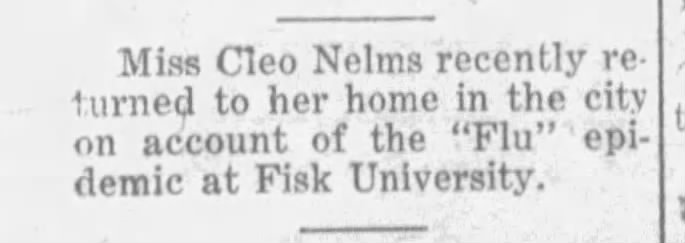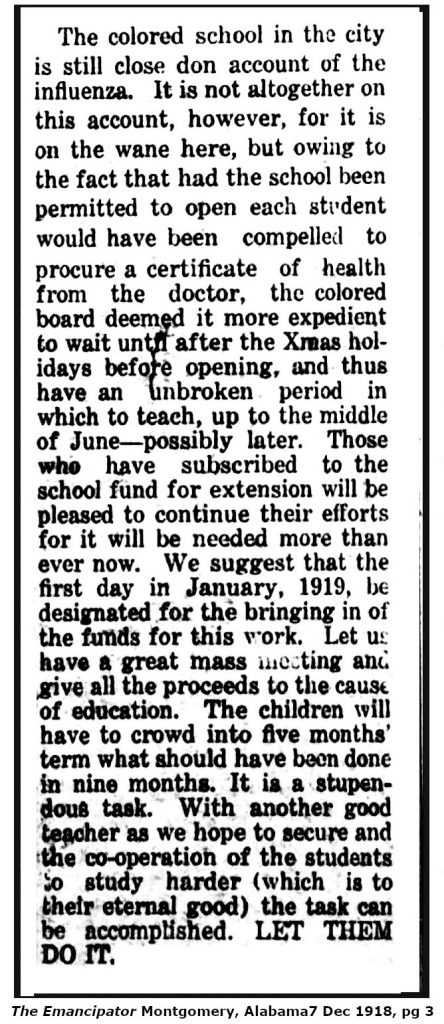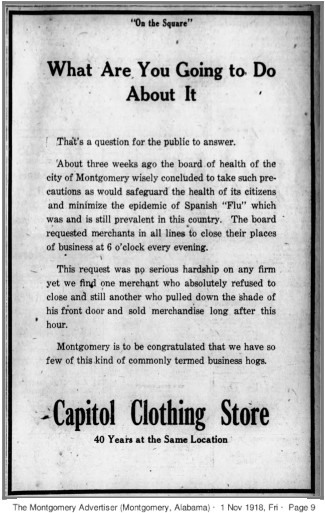
In 1918 and 1919 thirty-seven young women, friends and neighbors of my grandmother Fannie Mae Turner were members of the Edelweiss Club in Montgomery, Alabama. These are snapshots from their lives, place and times. Click on any image to enlarge.
In 1918 Cleo Nelms, the third of the six surviving children of Jesse and Fannie Lee (Grimes) Nelms, was born in Barbour County Alabama but the family moved to Montgomery about 1904.
Her mother worked as a seamstress in the early years of her marriage. Her father, Jesse Nelms was a bartender in Barbour County. Later he worked as a dining car waiter on the train between Montgomery and Alabama. For several years he sang in several groups that performed both on the train and at events. He also sold insurance. He must have made a good living as he sent his daughters to college. Cleo to Fisk and her older sister Bessie to Howard. Youngest daughter Fannie to State Normal School through to a college degree. All three of them taught school.
The “Spanish flu” epidemic hit Alabama first in Huntsville in September of 1918. By October it had spread south to Montgomery. On October 22, more than 12,000 cases were reported in Montgomery.
The reaction reminded me of what we went through during the first few years of the Covid epidemic – schools were closed, masking was recommended, businesses were closed. Gatherings were discouraged.

People worried about the months of school students would be missing and urged them to CATCH UP! There were no computer classes so students didn’t have any school work to catch up on.

There was a discussion of whether the teachers should continue to be paid while they were not in the classroom. It was decided they should be or they might give up teaching and find other work. The Edelweiss Club had meetings in November and December of 1918 and continued during the New Year to meet. As far as I can tell they all made it through their pandemic alive.
You can read more about it here, a short piece 1918 Influenza in Alabama

Fitting I’ve caught up on the post which talks about catching up. I’ve loved your posts over the years and this theme is wonderful. I’m in my 60’s but think I’d love an Edelweiss club meeting.
I wish I could be a fly on the wall of those 100 year ago meetings!
I am glad there were no ill effects on club members from that pandemic of more than a hundred years ago
So am I. There were notices of several deaths in the Emancipator. Both were young men.
I am glad that all of the club members remained healthy! I am enjoying your posts!!
I think some of them probably got sick, but there were no notices of deaths so that was good. I’m glad you are enjoying the posts.
So wonderful to see how a community acts together to protect, and for the betterment of their children. We could learn so much from their sensible practices.
That’s what I was thinking too, Nancy. The notice stresses the importance of catching up on the schooling the children had missed and even as it calls on people to redouble their efforts, it assumes the best of both the community and the students themselves. I love the high-minded tone: “Let us have a great mass meeting and give all the proceeds to the cause of education. . .LET THEM DO IT.”
There were also times when large groups gathered, when profit took the forefront and businesses were allowed to reopen, etc. Eventually, in the third year of the pandemic, people just sort of gave up and went back to normal. People continued to die, but the efforts to contain were given up. Sort of similar to what has happened with covid. After the third year, things seemed to go back to normal regarding influenza.
The Spanish Flu was a true pandemic, hitting most of the world very hard.
Yes it was, yes it was.
Just as frightening in 1918 as Covid-19 was for us in 2020! One of my dad’s uncles died in the Pandemic, but everyone else miraculously survived. (https://mollyscanopy.com/2020/10/the-1918-influenza-strikes-the-mohawk-valley/) The women in Edelweiss Club must have been relieved to make it through at a time of few protections/treatments.
I’m sure they were. I know my family was glad to have made it through the worst of Covid-19 with no deaths.
Thinking about Influenza makes me grateful for our Covid vaccines.
Although I had been vaccinated for influenza I brought a nasty case of Influenza B back from Rootstech in 2018. I guess the Australian vaccine was against the local strains and didn’t cover the one I caught.
Once when I was getting my flu vaccine I asked the nurse who was giving it, if now I was safe around my grandchildren who may have the flu. She said don’t count on it. The vaccine would make the episode milder, but it didn’t provide 100 percent protection. I think the Covid vaccine does the same.
Business hogs!
Alive and well today!
I researched the Spanish Flu Pandemic a couple of years ago, and, yeah. It’s eerily similar to what happened to us. One would think 100 years would have make more of a difference.
You would think so, but apparently people don’t actually change as much as we think they do.